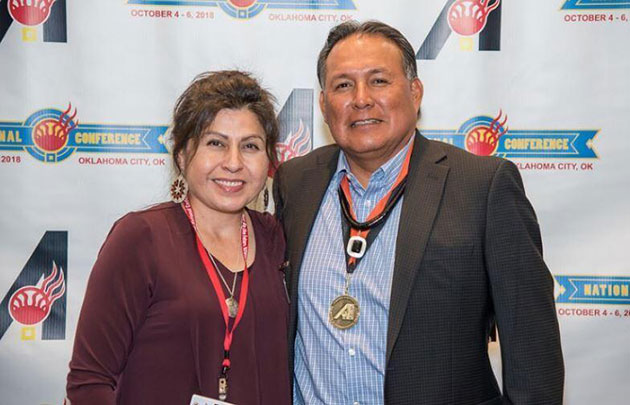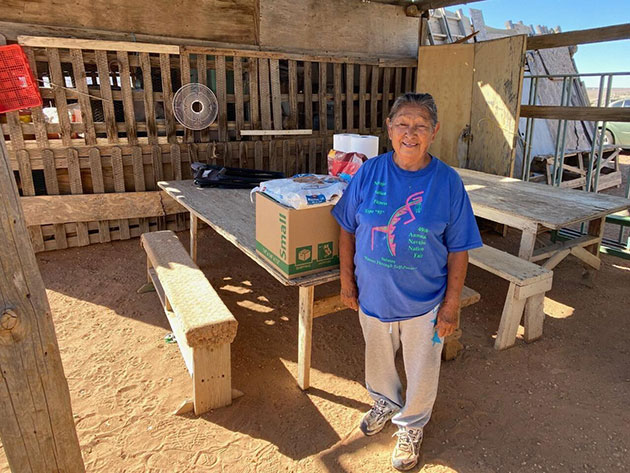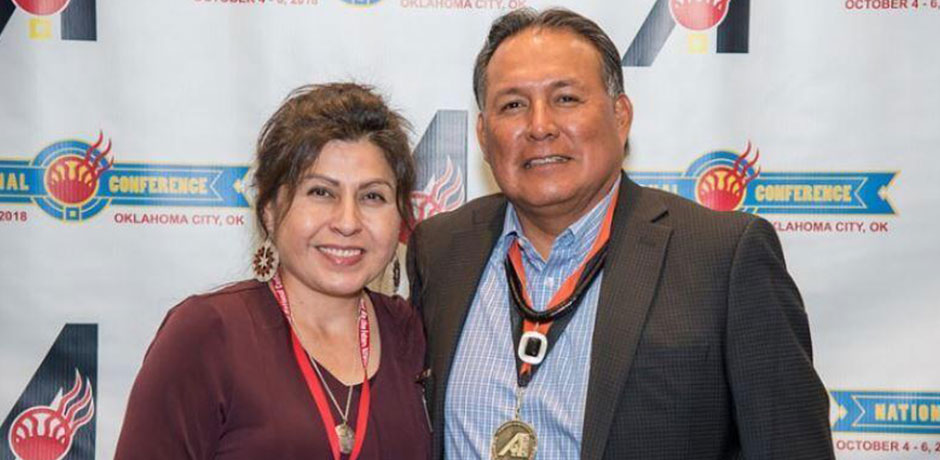Race & Ethnicity
Guiding leadership on increasing opportunities for Native Americans
He grew up without electricity or running water. Now he inspires Native Americans inside and outside of Boeing.
Alex Tsosie is an occupational health and safety specialist based in Renton, Washington. He joined Boeing in 2014.
Alex Tsosie understands the continuing struggles facing Native American and Indigenous communities in the U.S. because he lived them.
“I grew up without the luxury of having electricity and running water until I was in my early teens,” said Tsosie, who was raised on the Navajo Reservation in Arizona. “Many of us were sent to boarding schools hours away from our parents. We weren’t allowed to speak our language. Being raised on a reservation was difficult.”
Tsosie wants to help change that reality. “My family was poor, but my dad always stressed the importance of getting an education, and that really motivated me," he said.
Tsosie took his dad’s advice and got his engineering degree, and now he has a passion for getting students excited about STEM. He found his way to Boeing in 2014 and currently works as an occupational health and safety specialist based in Renton, Washington.

Photo courtesy AISES
Almost immediately after joining the company, Tsosie got involved with the Boeing Native American Network (BNAN), becoming its enterprise president in September 2020. He started organizing Boeing site tours for local Native-run schools, and he wants to do more STEM outreach in the schools, too.
“The Navajo have a saying, ‘Táá hó’ájit’éégóó,’” Tsosie explained. “In English that translates to: ‘it’s up to you.’ I heard that as a child, and I always remembered it.”
Boeing and its leaders, too, are committed to supporting Native American and Indigenous communities to ensure they have more equitable opportunities for success.
In October 2020 the company announced a commitment of $1.3 million to support Indigenous communities across the U.S. The investment package includes $300,000 in grants for Southwest Tribal Nations to improve access to clean water, bridge the digital divide in education and provide better natural disaster response and preparation.

Photo courtesy AISES
The package also includes $140,000 in grants in the Pacific Northwest and a $60,000 grant in Oklahoma supporting STEM education programs for students.
“We recognize the toll on Native American and Indigenous communities from centuries of injustice, and we take seriously our role in supporting education and development in these communities,” said Marc Allen, Boeing’s chief strategy officer, senior vice president of Strategy and Corporate Development and enterprise executive sponsor of BNAN. “Today’s exciting announcement continues our longstanding efforts to lift up equity and opportunity in the communities where our employees live and work.”
An additional $840,000 will fund future projects for Native American and Indigenous communities to be detailed at a later date.
“It is inspiring to see Boeing continue to make its commitment to help improve the lives of those they serve,” said Gwendena Lee-Gatewood, chairwoman of the White Mountain Apache Tribe. “Boeing funds will help our children obtain assistance and empower young people across the Apache Nation with new leadership skills, new education partnerships, and health and technology.
"As children, we were all taught to treasure what the Earth gives us and to make sure that we leave it for the next generation, and by helping improve educational needs of our children, we are helping empower them. This is truly magnificent.”
Tsosie will be part of Boeing’s ongoing racial equity work. Earlier this year, he was named to the Racial Equity Task Force that will provide recommendations to leadership on how to create systemic inclusion and racial equity beyond the actions that have already been outlined.
“My heart started dancing as if to a round-dance song,” said Tsosie after learning about the investments. “We have a lot of opportunity to do more for our Native communities, but this is a good start.”
Tsosie also wants to continue to increase participation in BNAN, one of Boeing’s nine business resource groups. Currently, BNAN has eight chapters across the U.S. with nearly 800 members representing more than 50 tribes.
“We need to mentor our young Native professionals that join Boeing,” Tsosie said. “Our voices might be faint, but we are strong and resilient, and we have a lot to contribute.”
